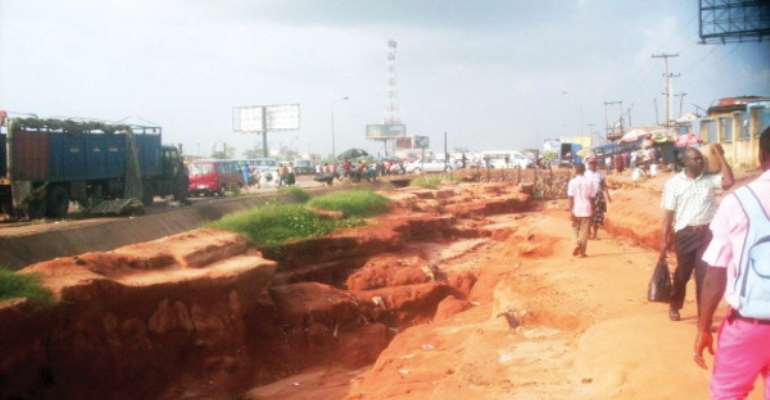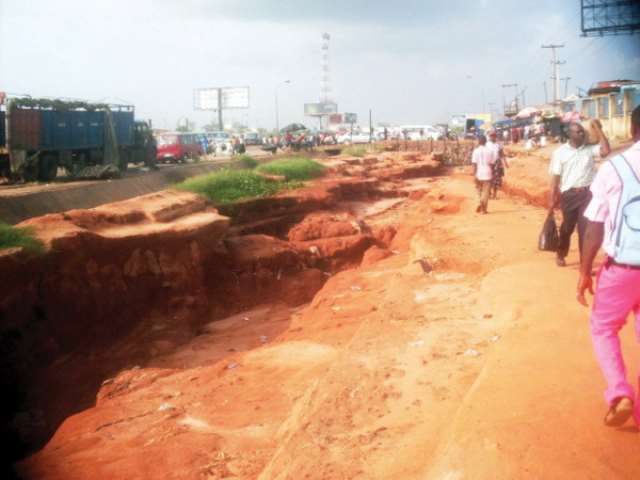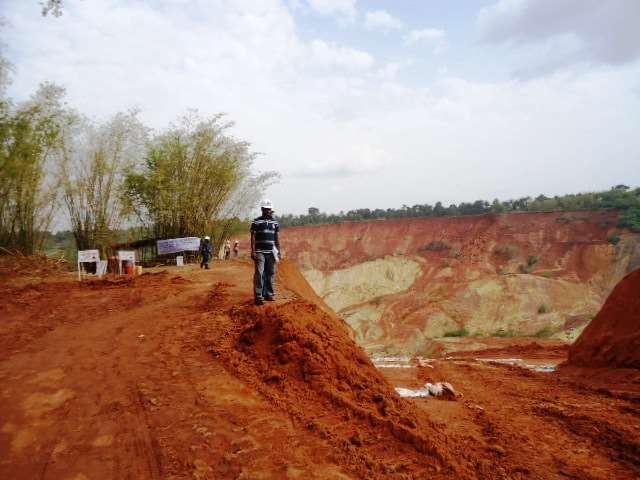ANAMBRA STATE AND THE MENACE OF EROSION

That Anambra State is the most erosion devastated state in the country is evident; that it is prone to greater ecological disaster if no serious intervention is structured to combat the awful degradation is truer. Anambra State is adjudged to be the most erosion prone and erosion devastated landscape in the world. Although other states in the south-East geopolitical zone of Nigeria have some dose of the environmental ogre, none compares to the intimidating number and sizes of the erosion sites in Anambra State. The South-East is therefore obviously threatened by a physical environment that seems ever ready to slip into nothingness.
There are about one thousand erosion sites with varying degrees and dimensions in Anambra state. The Nanka erosion has ironically become famous and legendary in its devastating effects on the agricultural and other socio-economic lives of the people of the communities in the area notably: Nanka, Agulu, Oko and many other continguous towns who groan under the enormous and increasing danger of this phenomenon.
Over the years, more especially since the end of the Nigerian civil war about forty three years ago, erosion ogre has progressively been an albatross in Igbo land. Some geologists attribute this unsavoury development to war activities such as indiscriminate digging of trenches by soldiers, as well as detonation of explosives and bombs on Igbo land where the war actually raged.
Like other natural or ecological disasters such as earthquake, hurricane, typhoon and tornado in other parts of the world, erosion is causing horrendous and incalculable havoc in Igbo land. Various efforts made by indigenous people to checkmate the menace amount to naught in the face of the rampaging landslide. Governments in the South East have also been making efforts to contain it through practical measures and enlightenment campaigns on the indigenous population of erosion ravaged localities. Clarion calls have equally been made on the Federal Government of Nigeria, international agencies as well as foreign countries to save the zone from further degradation.
These Save-Our-Soul messages remained tepid, and could only elicit insignificant attention. This was the unfortunate scenario until recently, when the South-East Governors' Forum, under the dogged and diplomatic leadership of Governor Peter Obi, prevailed on the Federal Government to declare a state of emergency on erosion menace in the South-East.
To this end, the federal government has set aside eleven billion, five hundred million Naira to tackle fifteen major ecological challenges in Igbo Land. Out of this huge amount of money, three billion, six hundred million Naira is for the control of five erosion sites in Anambra State. Apart from this, the Obi administration has also convinced the World Bank to commit another five billion, two hundred and eighty million Naira to erosion checkmating and control in Anambra State. This brings the amount of money from external sources already set aside for erosion containment in Anambra State to over nine billion Naira.
Although nine billion Naira is by no means adequate to tackle all the challenges raised by erosion in the state, it is nonetheless very significant as foregrounding in the battle to subdue the wanton loss of homeland. It is also worthy of note that no previous government in any of the five South-East states achieved greater results than the Obi administration in the war against erosion devastation in the zone.
Today, concerted efforts are made towards containing the Nanka-Agulu-Oko axis of the erosion devastation, just as the Nkisi-Water-Works erosion disaster in Onitsha is being addressed. The ones at Ojoto and Alor in Idemili South Local Government Area, in addition to the Umuchiana erosion site in Ekwulobia, Aguata Local Govern Area, are also in check through the special intervention of Governor Peter Obi.
Indeed, but for the efforts of the present administration in Anambra State to challenge the erosion onslaught, greater part of Anambra would have been lost to erosion and landslide.
Okechukwu Aziatika writes from Awka.


